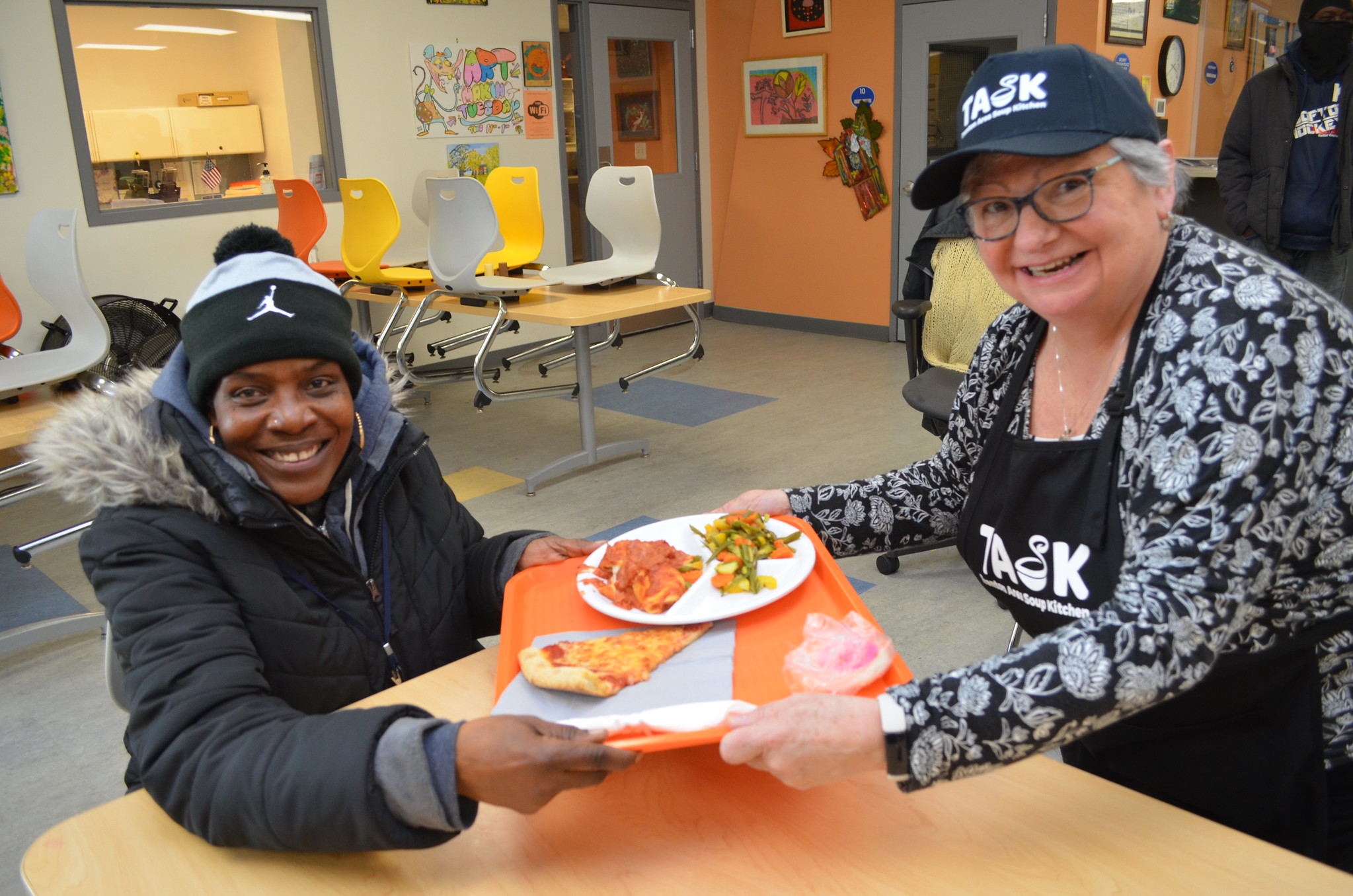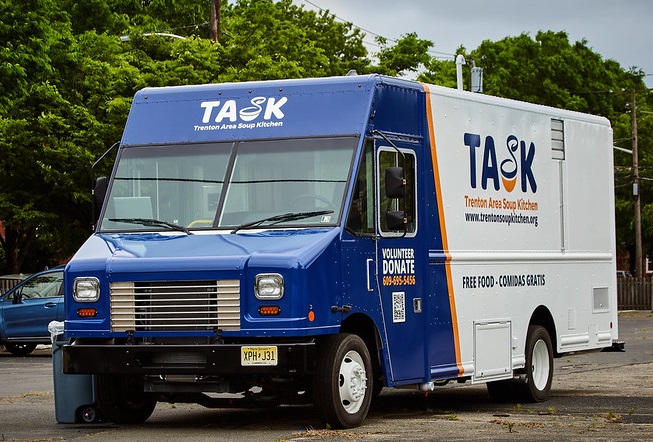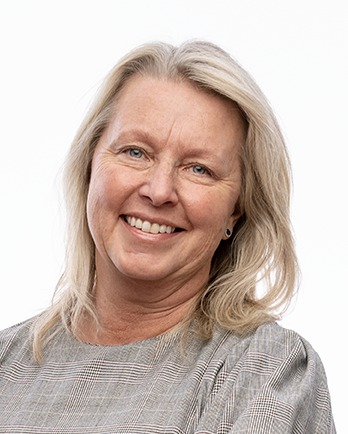News, Events & Stories
TASK & New Jersey Are Turning Hunger into Hope
CEO Joyce E. Campbell highlights statewide ‘food security’ wins in special Q&A

Over the past year, TASK CEO Joyce Campbell has been hard at work engaging community stakeholders as she led the charge to develop TASK’s new strategic plan. Throughout the process, Campbell, who has been at the helm of TASK for eight years this month, has helped crystallize TASK’s role in hunger relief while also shaping TASK’s vision for the future.
Recently, Campbell sat down to discuss how TASK and the State of New Jersey are addressing the hunger crisis in our community and the ways we are working together to help prepare for the future.
After declining during COVID, poverty and hunger are once again on the rise thanks to inflation and the end of pandemic emergency relief programs. What impact is this having at TASK, where our meal service is approaching and sometimes exceeding pandemic highs of 10,000 meals a week?
The pandemic showed us that additional assistance really does make a difference when it comes to fighting hunger. SNAP benefits and rental assistance are two basic programs that help lift people out of poverty and stabilize them. The impact of the reduction in SNAP benefits nationwide is going to be huge – families are seeing a decline of about $82 a month per person. It’s still early days, but this will have a ripple effect across the nation. We are expecting it to hit very hard in the next couple of months. At TASK, we’ve seen a dramatic rise in the number of Spanish-speaking families with children coming to Escher Street. Food pantries and soup kitchens across the state are also seeing big increases in the demand for services.
Fortunately for TASK and our patrons, NJ is a national leader in the fight against hunger. What is New Jersey doing right?
The first thing I think we are doing right is recognizing the reality of the cost of living. The Federal minimum level of SNAP benefits for single individuals is $23 a month. With high levels of inflation that might buy enough for a couple of days’ meals. New Jersey has set a $95 minimum benefit for single folks, which is more realistic in a state with some of the highest housing and living costs in the nation. This fall, the state will also increase income eligibility for free school meals – breakfast and lunch – to middle-income households. Most of us who work in hunger relief would advocate for meals to be free across all schools. Having proper nutrition can make or break an education. So if you are going to put billions of dollars into educating students without ensuring that they are fed while they are learning, it really is not a good use of government funding.
New Jersey has long recognized the importance of hunger relief programs. There are a lot of things that have been done, but these two latest efforts should help families with children, seniors and single households deal with inflation. It’s gratifying our leaders recognize that to make a difference, people need more resources and more money in their pocket.
Another ‘win’ for anti-hunger advocates was the creation of the NJ Office of the Food Security Advocate. What does it say about NJ that we are the only state with a so-called hunger czar?
I think it says we have champions and very passionate advocates across the state. We are very fortunate to have legislators that get it. In New Jersey, food is a unifier. Everybody understands that people need to eat. Hunger crosses political lines. We have a lot of private sector support, too, because food is an issue that impacts the retail world, for example. The New Jersey Food Council has been very supportive of increasing SNAP benefits and making it easier for people to use their WIC or EBT cards. These funds go back to the retailers, to the grocery stores. There’s economic benefits to all of these programs.
Why does TASK enjoy such strong relationships with local, state and national leaders?
I think there is attention paid to TASK by state leaders, including Food Security Advocate Mark Dinglasan, who visited us recently, because we have a comprehensive approach. Yes, we are about ending hunger, but we are also at the same time about reducing the impact of poverty. We have patrons who can speak to how well we have done the work. I think people visit us because they want to see a model they can replicate and fund.
In our new strategic plan, TASK has identified “pursuing advocacy” and “advancing thought leadership” as two hallmark commitments to the community. What do these terms mean to TASK and why are they important?
It means that we see and know what works. It means we listen to the experts — who are the people that we serve — to know what works and helps them. So that we can share those thoughts and lead the way in sharing those thoughts. That’s what I call thought leadership. Advocacy is when we take the words of the experts — the people who have lived with hunger and poverty — and share their stories to help decision-makers better understand how to craft policy and create effective programming.
You say folks often confuse “advocacy” with “politics.” TASK’s advocacy is more about educating people about hunger and its root causes.Can you elaborate?
Advocacy is about lifting the voices of those with lived experience to inform the public about these experiences, helping people become aware about what the facts are, and empowering people to exercise their rights and responsibilities as Americans. It’s storytelling; telling elected officials these stories often influences the legislation and policies they create. Politics, while defined as the art and science of government, has taken on a negative connotation. To the extent that advocacy informs legislators it is politics — not in a partisan manner, but for the common good.
Can you speak about the need for economic development locally and how it can positively impact the fight against poverty?
Getting people jobs sends money back into the economy and helps put folks on the path to self-sufficiency. Too often those working in economic development only partner with for-profit businesses. But nonprofits can play a critical role. TASK regularly hosts job fairs; we’ve helped hundreds of Trenton residents find jobs. They are putting money back into the local economy. TASK wants to help local leaders understand they should be embracing nonprofits as partners in growth. We hope to highlight this issue during Hunger Action Month in September.
You’ve often said, “Hunger is a big problem, we think bigger.” TASK thinks bigger, but how do we “do bigger and do better?”
We’ve always thought bigger because we have addressed the challenge of hunger not just as a food problem, but also as a problem of poverty, of inequity. Over the years we’ve done bigger by going out and serving meals at 34 — soon to be 35 — community sites across the Greater Mercer County area. Now, we’ve hired someone who can listen to what is happening and provide feedback so we can do better for our patrons. We are thinking bigger with our plans for a new hunger van. We will be going where people are not getting food and we will also provide them with basic hygiene products because people need more than just food. And then we’re thinking even bigger than that: we hope to establish a new community food hub, another central place, likely in an underserved area of Trenton, where more people can go for our wrap-around services.
Throughout the pandemic and beyond, our supporters continue to show they care – through countless in-kind gifts, generous donations, volunteering, or by participating in service projects at home. How does that make you feel? Why does TASK enjoy such support?
Knowing there really are a lot of people out there who care is a great piece of humanity. It really keeps our spirits up, which is so important because the work we do is difficult, sometimes even heartbreaking. I believe TASK garners community support because we do a good job showing the impact we have had on people’s lives. We share eye-opening data about the extraordinary number of meals we deliver — more than 6 million over the last 41 years — and how we’ve successfully innovated and grown our food program. We share inspiring stories about the strength and resilience of the patrons we serve and the volunteers whose lives are enriched by the joy of giving back.
Our patrons teach us so much about keeping hope alive in the face of adversity — what lessons can hunger advocates learn from them as we struggle to remain optimistic during a time of rapidly rising need?
Our patrons teach us a lot about resilience. They teach us to persevere. Our patrons also teach us how to be humble. We learn what works and what doesn’t work from them. Right now, TASK is turning hunger into hope by continuing to look for ways to meet the needs of our patrons. We cannot stop. We cannot be silent. We need to make sure that the voices of those we serve are heard.



